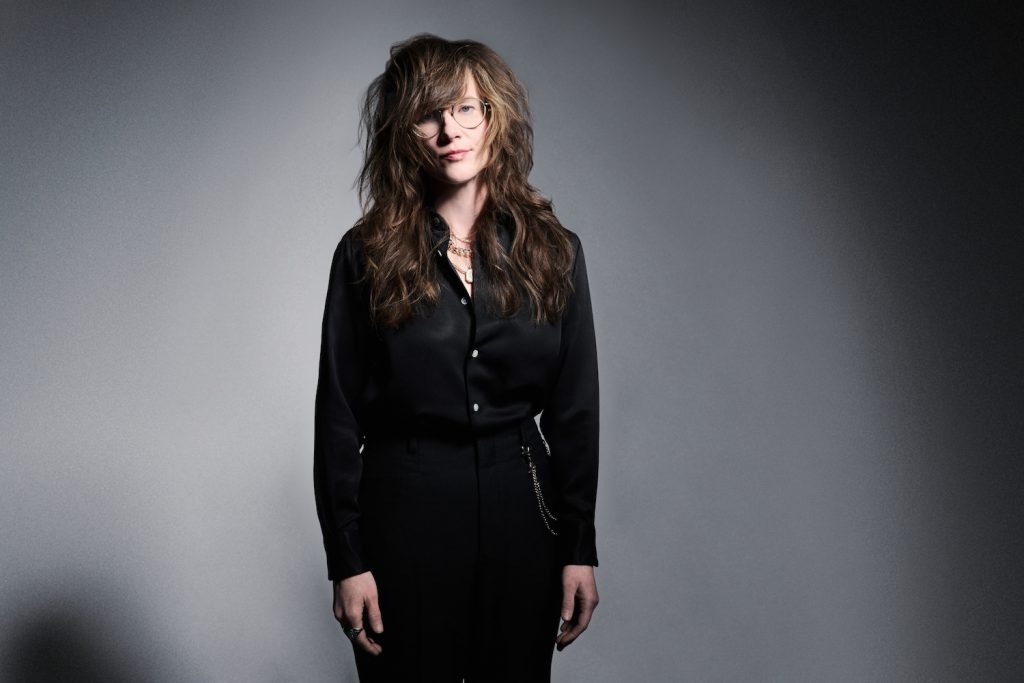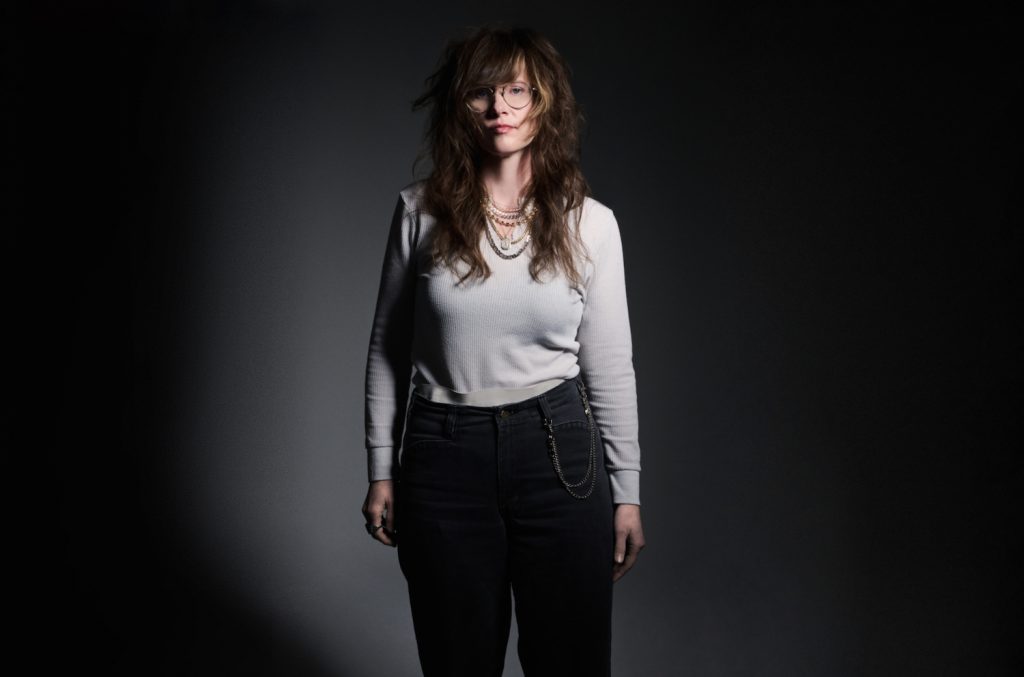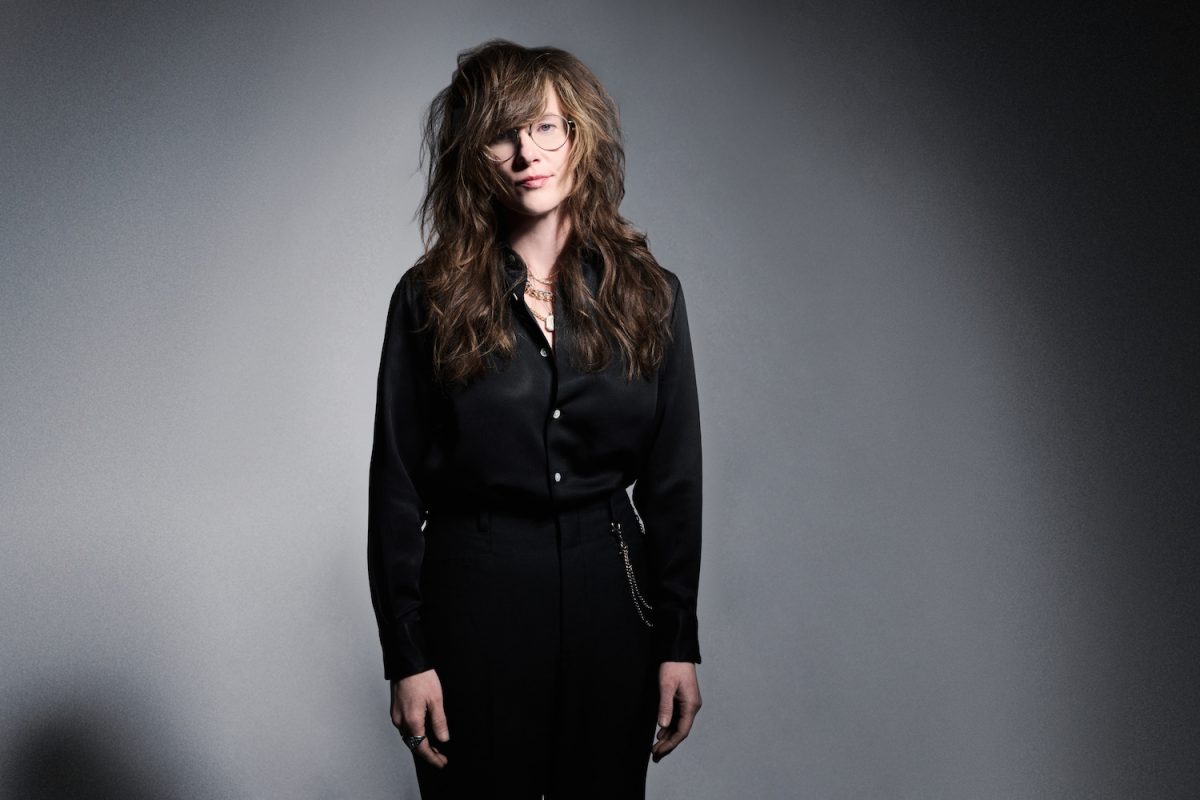
“Coming up from the subway now. Should be able to talk now.”
Things have suddenly become quite busy for S.G. Goodman. The text above came just a few minutes after a missed call for our interview, one of a few she has scheduled the day before a June 7 record release show at New York City’s Mercury Lounge. Then it’s off to Europe. Two years ago, Goodman launched her Jim James-produced debut, Old Time Feeling, into the mid-pandemic void, touring only sporadically. Now, with the edgier, more assured Teeth Marks (Verve Forecast), she’s experiencing all the benefits—and the annoyances—of a proper promotional push.
It’s somehow appropriate to be checking in with Goodman in NYC, seeing as Teeth Marks’ gnarled beauty brings an urban vibe to the singer/songwriter’s rural point of reference. Raised on a farm, she began singing at her local church before finding a more authentic voice as a part of the indie scene in Murray, Ky., home to Murray State University. Often bluntly, Teeth Marks addresses the personal repercussions of her coming out as a gay woman in her small community. With a dichotomous vocal delivery that’s part lost child, part Patti Smith grumble and snarl, Goodman bridges the gap between big-city alienation and small-town isolation. In fact, Teeth Marks makes the argument that they’re often one and the same.
The timing of your debut couldn’t have been worse. How did you handle that?
Well, luckily, because it was my debut album, I was pretty ignorant to much of the process—and I was also ignorant to what I was missing out on. I thought any minute I’d be back on the road and life would resume, and years later here I am. I really don’t think I could fully understand what that meant for me until now, when I’m in the middle of an in-person press cycle and being able to play out. It’s kind of this really weird experience of being excited about this album, but also mourning what I missed out on with the last one.
Sounds like it’s been a growth experience.
I’ve definitely paid some dues, as far as being road-worn. I love what I do, but there’s nothing glamorous about cramming five people into a hotel room because, ethically, you don’t want to hit up that one friend you know in a city because there’s a pandemic going on. There were some strange blessings that I didn’t realize were preparing me for this moment. As far as this new record goes, it wouldn’t have happened the way it did if it weren’t for the pandemic and having this realization that I might not get that time alone again in the foreseeable future.

Where are you living these days?
In Murray, about an hour from where I was raised. I bought a house there. During the pandemic, to make a little money, I started working for an older gentleman on his property, helping him with upkeep and things. I’ve always done manual labor my whole life. Every time I come home from a tour, I go out and work on that farm for a little while. There’s something so grounding about working with your hands and connecting back with nature and the earth.
Tell us about your touring band.
(Drummer) Stephen Montgomery and I have been playing together for about 12 years now. We’ve been close friends since college. (Bassist) Mark Sloan and I met during my short stint in Nashville. He’s an artist himself who goes under the stage name Slark Moan. Guitarist Michael Ruth is also an artist. He’s about to put out a record as Rich Ruth on Third Man Records in August.
How was the creative process different for Teeth Marks?
I normally like to demo songs to death, but I couldn’t do that during the pandemic. You could probably ask anyone who’s worked with me, and they’ll tell you that I’m pretty hellbent when I have an idea about something. I co-produced this album with Drew Vandenberg, and unfortunately for him, a lot of my ideas were little murmurs on my iPhone, because it was the only real way to get an idea down during the pandemic. I feel like this album is more intentional.
Intentional? How so?
You get a good feel for how people are receiving you as an artist by what they tell you at your merch table. I had so many people come up to me and talk about how I made them cry and how the songs were so emotional. That’s not a bad thing. But it’s also kind of hard to swallow when you feel like you’re putting people in that space all the time. I wanted to push myself to write songs that were faster and more positive—songs that would allow me to rock out a little more in a live setting.
Was it difficult trying to be more upbeat in the middle of a pandemic?
I mean, let’s be honest, I needed as much of a pick-me-up as anybody else. For so many people, music got them through the pandemic. It was gettin’ me through it, too.
—Hobart Rowland







